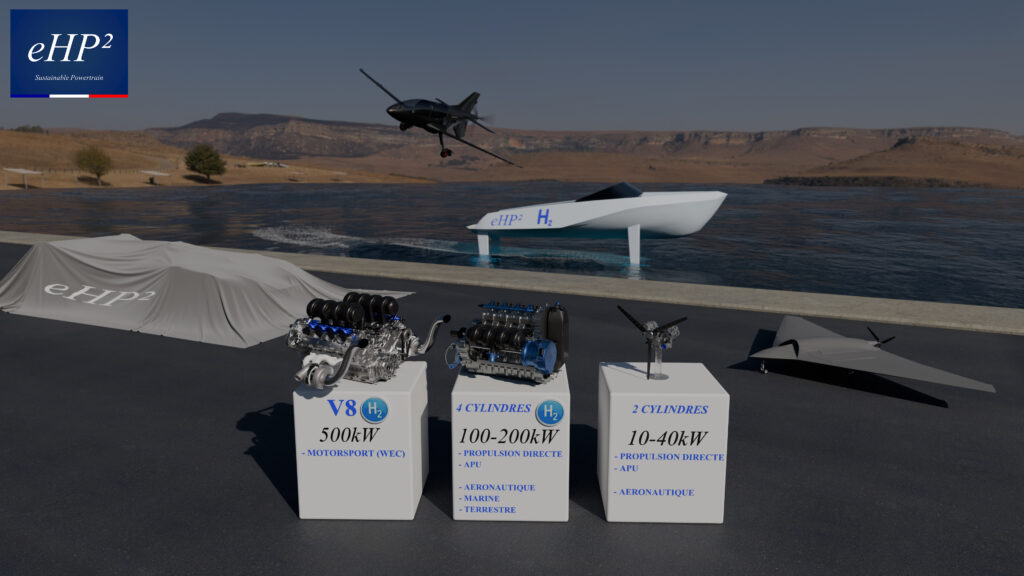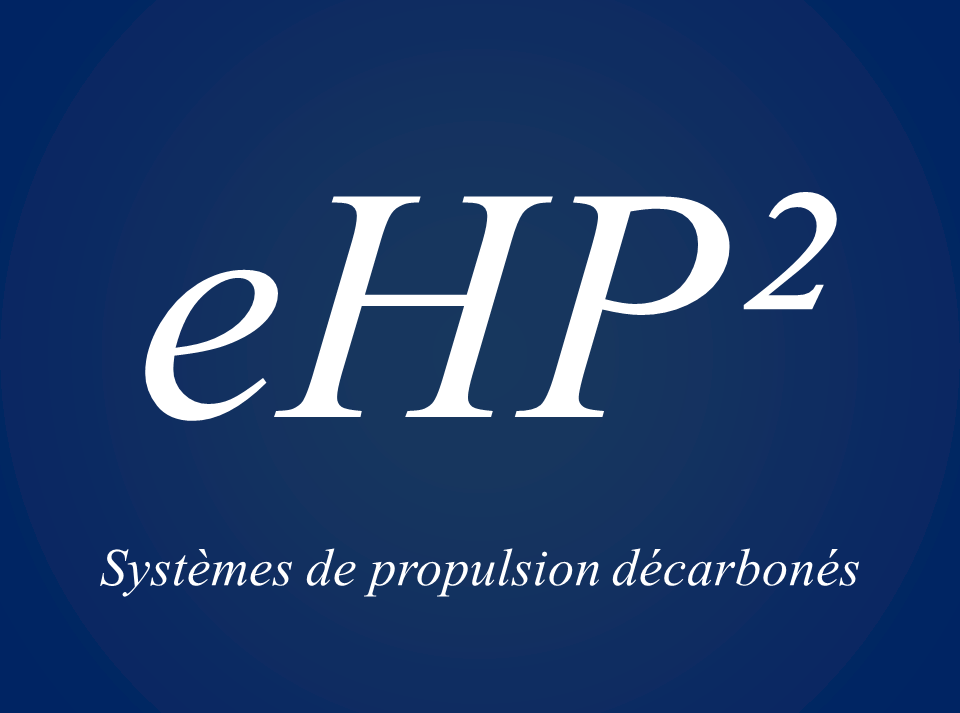
🚀 🚀 EHP2 unveils its plans for developing decarbonized internal combustion engines ranging from 10 to 500 kW – a step forward towards a decarbonized future! 🌍
Our hybrid and decarbonized internal combustion engines are opening new horizons for demanding transportation sectors. Designed to deliver high-performance, fully decarbonized industrial solutions that are economically tailored to the transport market, these engines are adaptable to several key applications:
✈️ Aeronautics In hybrid parallel or hybrid series (APU) direct propulsion, our powertrains meet the requirements of sustainable aviation while ensuring very high energy efficiency. The powertrains under development are primarily based on:
- Two-cylinder engines ranging from 10 to 40 kW, hybrid and highly efficient, using SAF fuels (spark-ignition cycle: gasoline, ethanol H2 and diesel cycle: gasoil, kerozene)
- Four-cylinder engines ranging from 100 to 200 kW, fully decarbonized in H2 versions
🚤 Marine In hybrid parallel or hybrid series (APU) propulsion, our powertrains meet the demands of decarbonized marine transport. Our developments primarily focus on four-cylinder engines ranging from 100 to 200 kW, with potential extensions to larger displacement and higher power engines.
Automotive Motorsport Automotive Drawing on its expertise in designing automotive racing engines, EHP2’s teams are engaged in developing ultra-high-performance propulsion systems in preparation for upcoming regulations on hydrogen-powered internal combustion engines..
With this range of engines EHP2 is committed to supporting the decarbonized energy transition while ensuring power, reliability, and technological innovation.
EHP2 is currently raising funds to support its industrial development. Join us to build the future of clean propulsion!
